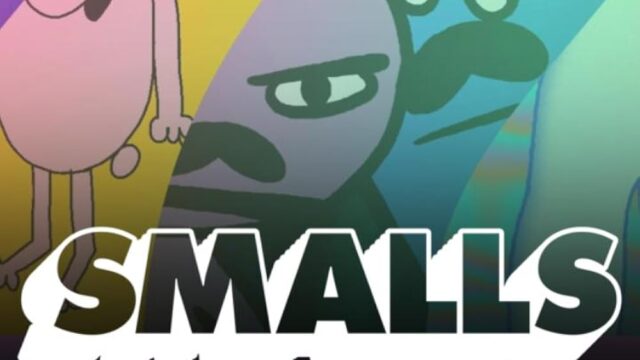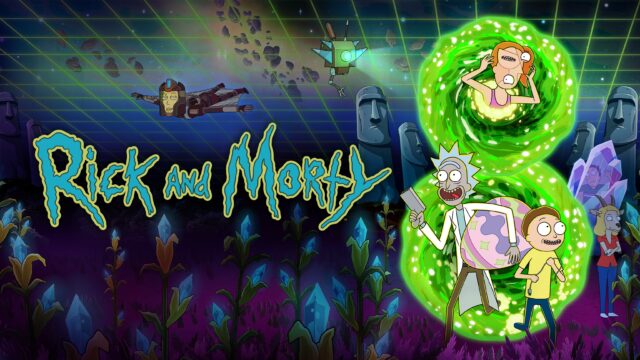Another Rick and Morty Retrospective: The Toxic Relationship between Creator and Creation
Rick and Morty and Game of Thrones are pretty similar when you come to think about it: both are modern takes on classic genres that started out relatively under the radar but quickly developed into worldwide phenomenon whose massive followings gradually rewrote their stories in favor of the lowest-common-denominator. Don’t get me wrong, I still think the current season of one is infinitely better the final season of the other. However, I strongly feel the direction they both point at as one and the same, and I’ll try to explain why.
In a 2019 interview with EW, Rick and Morty showrunner Justin Roiland said his team didn’t have any mantra other than “keep moving forward with new ideas, new worlds, and not look back as often as other shows might, just in fear of that coming off as disingenuous fan service.” Anyone that’s caught up with the show can tell at once how self-contradictory this statement is. Indeed, much to the delight of its fan base the season four premier contained not one but two Mr. Meeseeks cameos, while a subsequent episode offered a substantial role to Mr. Poopybutthole.
To give credit where it’s due, these familiar faces were not brought back without reason. The return of Mr. Meeseeks, done so only at the bequest of a fascist version of Morty, makes for a pungent insult slyly directed at the fans that reduce the show’s many good qualities to a handful of minor and frankly obnoxious characters. Likewise, Mr. Poopybutthole joined Rick’s heist team primarily because the latter needed to counter Heist-o-Tron’s calculations with random decisions, thus anchoring the former’s resurrection safely within the logic of the plot. That said: an adequate alibi does not a crime erase.
Some argue the reappearance of these characters has helped make the story world feel more grounded. I disagree, and in order to make my case will point you to Morty’s school. Despite being the setting of dozens of episodes, the place is terribly, though deliberately underdeveloped. None of the students except Morty’s crush Jessica have consistent personalities, and their conflicting designs, often drawn in different art styles, give the impression of the place being an alien simulation running at minimum capacity. How else could Rick just show up in the middle of the day and elicit no reaction from anyone whatsoever?
Even taunting and abusing the audience has become, at least in my opinion, just another form of a fan service. Take Matthew Broderick’s talking cat from the slut dragon episode (the hell is this sentence), for example. Widely interpreted to represent a big middle finger aimed at over-analyzing viewers like myself, the character warns about what happens when you expect something to be exceptionally profound and it turns out not to be. It’s a nice message, but I can’t help but think the show would be better if it simply ignored our own behavior instead of lowering itself to engage in dialogue.
Although I’ve been mostly nitpicking so far, I do believe these problems I’ve identified can be found at a macro level, too. Consider, for instance, the ways in which Rick’s character has changed over the years. This particular subject has been debated without end all over the internet, but while most observers have focused on his change from apathetic scientist into caring grandfather, few have taken interest in his transformation from generally careless inventor to constantly agitated nihilist, a transformation which had appealed strongly to the fan base’s need for ‘edge.’
When the show first started out, co-creator Dan Harmon envisioned Rick as the Doctor Who of Adult Swim. What he meant was that Rick, like any eccentric genius-type character (a label I’d also give to Pirates of the Caribbean protagonist Jack Sparrow, as well as The Joker from Christopher Nolan’s The Dark Knight), is someone we feel real affinity towards, but cannot relate to. In Harmon’s own words, “We want to hang out with the Doctor, we idolize the Doctor, but we don’t think like him.” Except, as the series goes on, we do start to think like the Doctor. Or, more accurately, the Doctor starts to think like us.
In order to get a better idea of what I’m talking about, just take a look at these two soliloquys. The first is from the show’s pilot, when Rick is arguably the most jovial he’s ever been:
“Not that you ask, Morty, but what just happened there is: I went into a future dimension with such advanced medicine that they had broken leg-serum and everything at every corner drug store (…) there’s just one problem, Morty, one little hang-up. The dimension I visited was so advanced, they had also halted the aging process, and everyone there was young, Morty, and they had been forever. I was the only old person there, Morty, like I was some sort of celebrity walking around over there. I was fascinating to them. There were a lot of attractive women there, Morty, and they all wanted time with me. I had a lot of fun with a lot of young ladies. But, I spend so much time there, my inter-dimensional portal device—it’s got no charge left, Morty! It’s got no charge left! It’s as good as garbage, Morty. It’s not gonna work anymore, Morty.”
The second is from an episode in season three, where Rick changes himself into a pickle in order to avoid going to family therapy, and the episode in which his existential angst and late-onset God complex are perhaps the most pronounced:
“Because I don’t respect therapy, because I’m a scientist, because I invent, transform, create, destroy for a living, and when I don’t like something about the world I change it. I don’t think going to a rented office in a strip mall to listen to some agent of averageness explain which words mean which feelings has ever helped anyone do anything. I think it’s helped a lot of people get comfortable and stop panicking, which is a state of mind we value in the animals we eat, but not something I want for myself. I’m not a cow. I’m a pickle…when I feel like it.”
One key characteristic of the eccentric genius-type is that they never, ever reveal what makes them tick; this ensures they remain mysterious and alien. In the first excerpt, Rick’s motivations, thoughts and feelings appear obscured, whereas in the second, they are laid bare. Admittedly, Rick has always been critical; throughout the first season he attacks the educational system as fervently he as he does the institution of psychology in the passage above. And yet, in the past, that criticism was always pointed outward, and never inward.
I’m not advocating that Rick be completely reduced to his happy-go-lucky first season self, mainly because his unhappiness gives him emotional depth. However, I believe there are other means of exploring that depth which don’t involve anything as finalizing as psychoanalysis. One episode that aimed to elicit the same response from us as the Pickle Rick speech—but did so with much greater success—is Auto-Erotic Assimilation, which ends in Rick trying to commit suicide. This sequence, played out entirely in silence, communicates similar feelings without attempting to explain them.
Not only does this approach honor Rick’s status at the story’s Doctor Who, it also makes for stronger writing, especially given how, as Harmon himself once said, “the knowledge that nothing matters—while accurate—gets you nowhere.” I think this quote in particular is something the creators, as well as the audience, should remember moving forward, because it indicates that Rick’s self-glorification is, fundamentally, little more than a vehicle for the fan base through which to channel their own misguided narcissism.
Rick and Morty premieres May 3rd @ 1130 pm ET/PT on Adult Swim, check your local listings

























"There are also other characters that come and go (also owned by the Warner Bros. Discovery conglomerate media company)."
Huh. Is that just referring to other characters from the show itself, or is this implying that the new season is going to have cameos from other WBD IPs